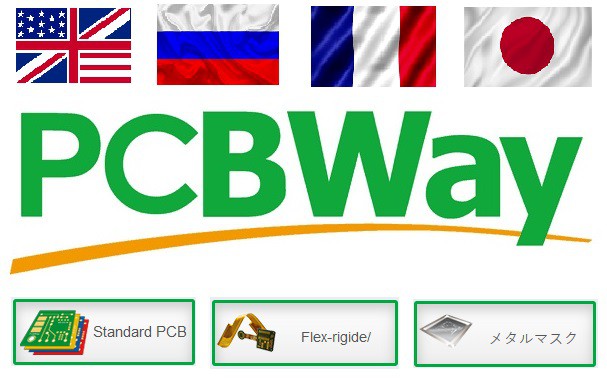Offering quality services on a global scale is a challenging task. Different countries speak a different language, also are in different time zones. The English language seems to be globally acceptable, but many people prefer communicating in their native language.

PCBWay is a company, which offers services globally and they are trying best to make things easier for everyone. Their main ordering page is English, and this is where the majority of orders come from. Additionally, they also had Russian and Spanish websites.
Recently the support of couple new languages has been included – French and Japanese.
What is good about multilingual websites?
Why not use an online translation plugin, but instead put an effort in translating content by professionals? Machine translation works pretty well but still fails in many things especially in technical jargon and terminology. Professional translation adapts website in terms of not only language but also the culture of the target audience.
Along with different language options, PCBWay is offering multilingual support. Meaning if you contact or order in French or Japanese, you will get professional response in those languages. This makes a big difference when comparing to automatic translation. It appears that they have an office in Paris (France). This only indicates that they take thing seriously.

The hidden stones of multilingual sites
From a customer perspective, the ability to choose a native language is a big convenience. This means that they can speak and write natively with full confidence that they know what they are talking about. No need to check dictionaries to digest new terminology. This way they can read faster, understand the content and make PCB orders with more confidence.
However, companies have a burden to keep up with multiple websites. The newly published content has to be represented in all languages. Administration or dedicated support staff must speak fluently in supported languages to respond appropriately.
The other problem is that content may not appear in all languages at the same time. For instance, if the English post is being published, then there might be a delay when the content is translated and published in other languages. Some posts may not be published at all – like blog posts. The other language sites may represent only the vital information such as ordering information and technical details on possible options.
There are even more details that are technical, including difficulties of maintaining a multilingual website. More resources are required to host, maintain, update, make sure interface is translated and more. But all these difficulties are manageable with the dedicated team.
The support of new languages usually comes with customers. If there is a significant amount of people from specific countries, it is logical to provide more accessible tools. Also, it depends on the capabilities of the company, meaning that there should also be a responsible staff member for support. Either way, this is a nice gesture from PCBWay to make the website more appealing for even more people. French and Japanese have now the ability to make PCB orders in their native languages.

PCBway provides excellent services starting with many different PCB technologies, prototyping and pushing first batches of your designs. They are capable of delivering standard PCBs with the full scale of options but also advanced PCBs, specially built for industry, automotive, high-frequency applications. Take a look at the previous post on flexible PCBs from PCBWay to find out what are the benefits over standard PCBs.
